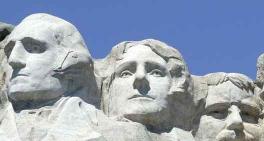Pennsylvania high court rejects lawsuit challenging election
Legal Compliance
Pennsylvania’s highest court on Saturday night threw out a lower court’s order preventing the state from certifying dozens of contests on its Nov. 3 election ballot in the latest lawsuit filed by Republicans attempting to thwart President-elect Joe Biden’s victory in the battleground state.
The state Supreme Court, in a unanimous decision, threw out the three-day-old order, saying the underlying lawsuit was filed months after the expiration of a time limit in Pennsylvania’s expansive year-old mail-in voting law allowing for challenges to it.
Justices also remarked on the lawsuit’s staggering demand that an entire election be overturned retroactively. “They have failed to allege that even a single mail-in ballot was fraudulently cast or counted,” Justice David Wecht wrote in a concurring opinion.
The state’s attorney general, Democrat Josh Shapiro, called the court’s decision “another win for Democracy.”
President Donald Trump and his lawyer, Rudy Giuliani, meanwhile, have repeatedly and baselessly claimed that Democrats falsified mail-in ballots to steal the election from Trump. Biden beat Trump by more than 80,000 votes in Pennsylvania, a state Trump had won in 2016.
The week-old lawsuit, led by Republican U.S. Rep. Mike Kelly of northwestern Pennsylvania, had challenged the state’s mail-in voting law as unconstitutional.
As a remedy, Kelly and the other Republican plaintiffs had sought to either throw out the 2.5 million mail-in ballots submitted under the law — most of them by Democrats — or to wipe out the election results and direct the state’s Republican-controlled Legislature to pick Pennsylvania’s presidential electors.
In any case, that request — for the state’s lawmakers to pick Pennsylvania’s presidential electors — flies in the face of a nearly century-old state law that already grants the power to pick electors to the state’s popular vote, Wecht wrote.
While the high court’s two Republicans joined the five Democrats in opposing those remedies, they split from Democrats in suggesting that the lawsuit’s underlying claims — that the state’s mail-in voting law might violate the constitution — are worth considering.
Commonwealth Court Judge Patricia McCullough, elected as a Republican in 2009, had issued the order Wednesday to halt certification of any remaining contests, including apparently contests for Congress.
It did not appear to affect the presidential contest since a day earlier, Gov. Tom Wolf, a Democrat, had certified Biden as the winner of the presidential election in Pennsylvania.
Wolf quickly appealed McCullough’s decision to the state Supreme Court, saying there was no “conceivable justification” for it.
The lawsuit’s dismissal comes after Republicans have lost a flurry of legal challenges brought by the Trump campaign and its GOP allies filed in state and federal courts in Pennsylvania.
Related listings
-
Trump's legal team cried vote fraud, but courts found none
Legal Compliance 11/22/2020As they frantically searched for ways to salvage President Donald Trump's failed reelection bid, his campaign pursued a dizzying game of legal hopscotch across six states that centered on the biggest prize of all: Pennsylvania.The strategy may have p...
-
Nevada church asks US Supreme Court for 2nd COVID cap review
Legal Compliance 11/09/2020Unsuccessful in an earlier bid for an emergency injunction, a Nevada church is asking the U.S. Supreme Court again to consider its challenge of coronavirus restrictions on religious gatherings as a test case for others brought by churches across the ...
-
Election 2020 Today: No winner yet, Trump’s court threat
Legal Compliance 11/05/2020NO WINNER: President Donald Trump carried the prized battleground of Florida, then he and Democrat Joe Biden shifted their focus to three Northern industrial states ? Wisconsin, Michigan and Pennsylvania ? that could prove crucial in determining who ...




